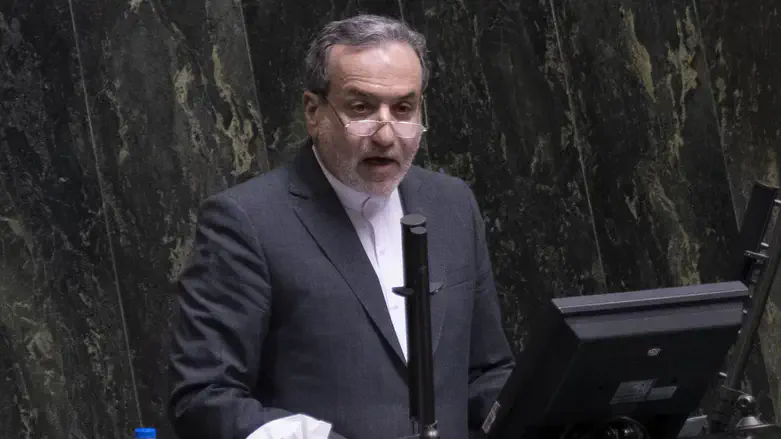
Iranian Foreign Minister Abbas Araqchi has warned that the nuclear debate within Iran may shift towards acquiring nuclear weapons if Western nations proceed with their threat to reimpose all UN sanctions.
In an interview with The Guardian, Araqchi claimed that while Iran possesses the knowledge and capability to develop nuclear weapons, such weapons do not currently feature in its security strategy.
Iran’s Supreme Leader, Ayatollah Ali Khamenei, banned the development of nuclear weapons in a fatwa (religious decree) in the early 2000s.
Iran has continued to claim that it is adhering to Khamenei’s fatwa and is not seeking nuclear weapons, but at the same time has continued to develop its nuclear program, as has been shown in several reports by the International Atomic Energy Agency (IAEA).
In the interview with The Guardian, which took place ahead of a meeting in Geneva with European negotiators, Araqchi described the discussions as a "brainstorming session" to find a resolution but admitted he was pessimistic about the outcome.
"I am not sure Iran is speaking to the right party," he said, expressing doubt about European nations’ intentions.
Araqchi accused European nations—specifically the UK, Germany, and France—of adopting a confrontational stance following the resolution censuring Iran which was passed at the International Atomic Energy Agency (IAEA) board meeting last week. The motion cited Iran’s lack of cooperation with inspectors and its accumulation of uranium with no civilian purpose.
Araqchi criticized IAEA Director General Rafael Grossi, claiming he had initially promised to halt the motion in exchange for Iran’s offer to cap uranium enrichment at 60% and grant access to four nuclear inspectors.
"He failed because the Europeans had decided on the course of confrontation," Araqchi charged.
In response, Araqchi announced that Iran had introduced thousands of advanced centrifuges into its nuclear program and had begun using them. However, he emphasized that Iran remained committed to the nuclear non-proliferation treaty and cooperation. "We have no intention to go further than 60% for the time being, and this is our determination right now," he said.
Araqchi acknowledged growing domestic debate in Iran about the effectiveness of its nuclear policy, suggesting dissatisfaction with the West’s failure to lift sanctions.
"Maybe something is wrong in our policy," he said, reflecting on the perception that Iran’s efforts to comply with agreements had not been reciprocated.
If sanctions are reimposed at the UN Security Council, Araqchi warned, "then they [will] have convinced everybody in Iran that, yes, your doctrine has been wrong." He said such a scenario would likely lead to a "crisis" and force Iran to reconsider its nuclear strategy.

